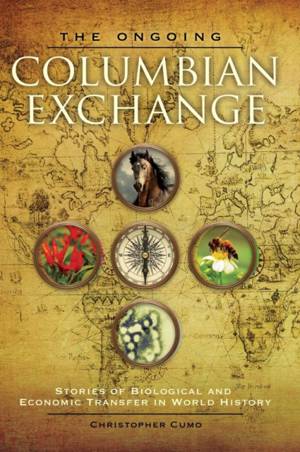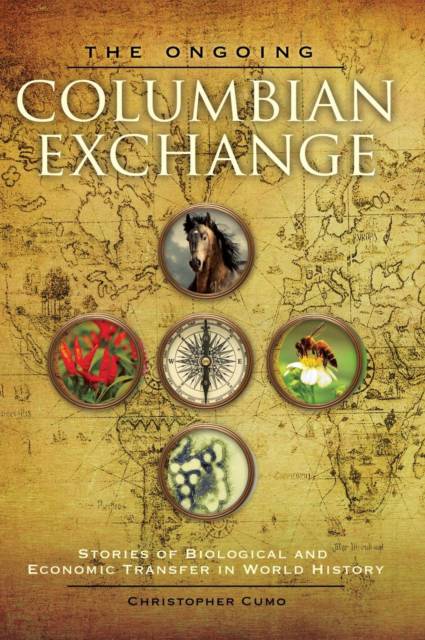
- Retrait gratuit dans votre magasin Club
- 7.000.000 titres dans notre catalogue
- Payer en toute sécurité
- Toujours un magasin près de chez vous
- Retrait gratuit dans votre magasin Club
- 7.000.0000 titres dans notre catalogue
- Payer en toute sécurité
- Toujours un magasin près de chez vous
The Ongoing Columbian Exchange
Stories of Biological and Economic Transfer in World History
Christopher Cumo
Livre relié | Anglais
183,45 €
+ 366 points
Description
This unique encyclopedia enables students to understand the myriad ways that the Columbian Exchange shaped the modern world, covering every major living organism from pathogens and plants to insects and mammals.
Most people have only the vaguest notion of how profoundly the world was changed by Christopher Columbus's arrival in the Americas. Indeed, some of what is commonly regarded as "traditional" Native American life and culture--living in teepees and hunting buffalo from horseback, for example--came from the arrival of Europeans. This encyclopedia helps students acquire fundamental information about the Columbian Exchange through approximately 100 alphabetically arranged entries on animals, plants, diseases, and items that were exchanged, accompanied by sidebars throughout that provide interesting discussions of key people, companies, and other related topics. The work begins with an introductory essay that overviews the Columbian exchange and not only addresses its biological and cultural components but also treats it as a political and economic event. The alphabetically organized entries cover topics ranging from the African slave trade, almonds, and alpacas to watermelon, whooping cough, and yellow fever. The encyclopedia also offers a chronology of the major events of the Columbian Exchange as well as 15 transcribed primary source documents that enable students to "look into history directly," including passages about the exchange that focus on the Irish Potato Famine, the slave trade, and the influenza pandemic of 1918-1919.Spécifications
Parties prenantes
- Auteur(s) :
- Editeur:
Contenu
- Nombre de pages :
- 424
- Langue:
- Anglais
Caractéristiques
- EAN:
- 9781610697958
- Date de parution :
- 25-02-15
- Format:
- Livre relié
- Format numérique:
- Genaaid
- Dimensions :
- 196 mm x 258 mm
- Poids :
- 1079 g

Les avis
Nous publions uniquement les avis qui respectent les conditions requises. Consultez nos conditions pour les avis.






